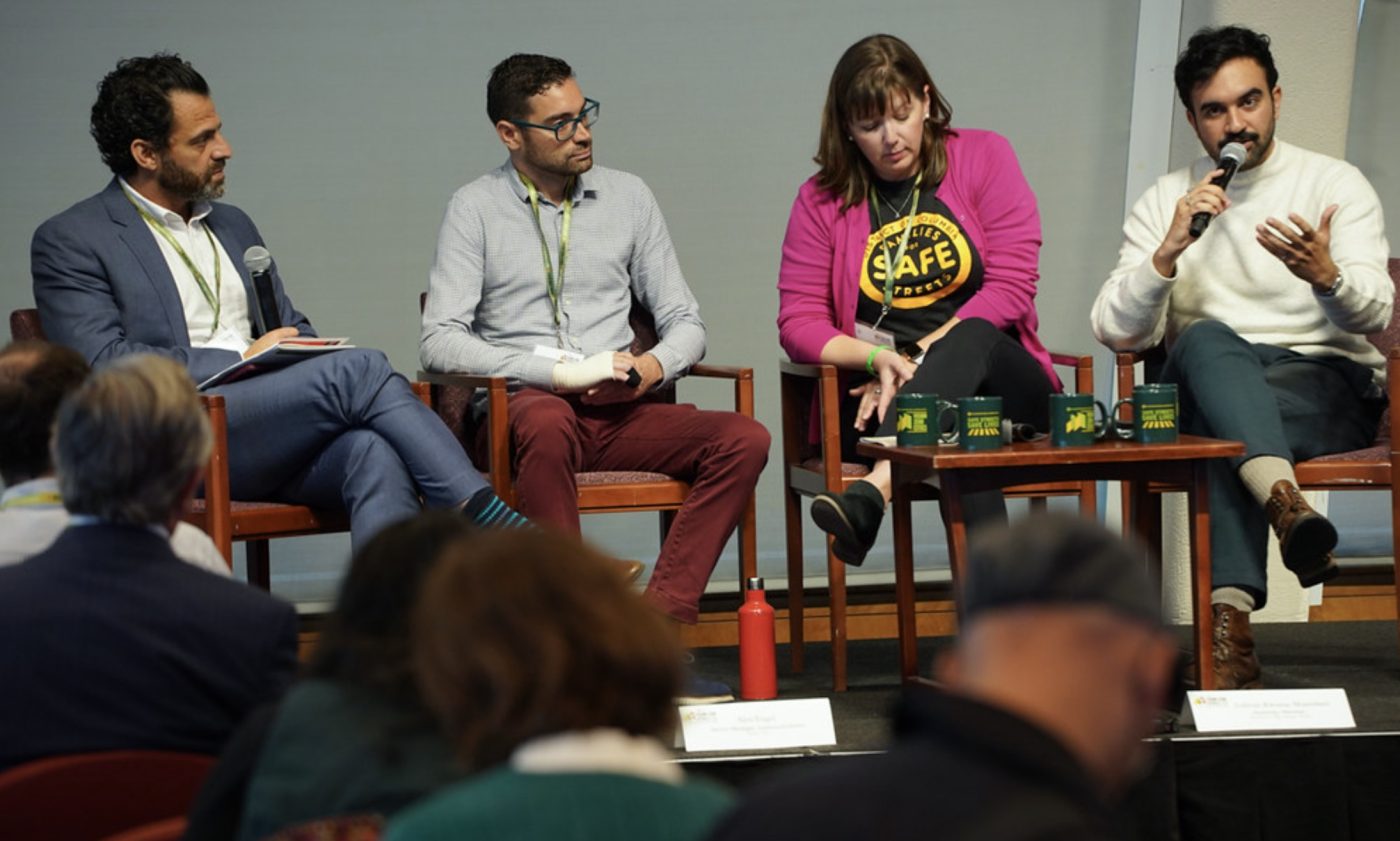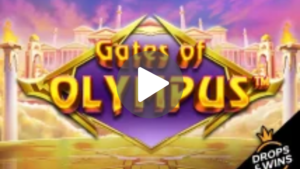Two years in the past this week I used to be in Manhattan protecting the Imaginative and prescient Zero Cities Convention hosted by New York Metropolis-based nonprofit Transportation Options. At a panel dialogue titled, Supersized SUVs, Mega Vans, and Regulatory Failure, one of many audio system made me sit up and take discover: He railed in opposition to feckless management that failed enhance bus service, referred to as for greater taxes on massive automobiles which are extra susceptible to kill individuals, and spoke about site visitors victims and transportation coverage with the candor, readability and conviction you’d anticipate from an activist.
However this wasn’t an activist. It was an elected official. He was a member of the state meeting named Zohran Mamdani. Sure, the identical Mamdani who would possibly very effectively be New York Metropolis’s subsequent mayor.
Mamdani’s strategy to highway security and his skill to speak his concepts made such an impression on me that I made his feedback the point of interest of my recap of that occasion. And ever since his rise within the NYC mayoral race, I’ve been wanting to return and re-listen to my audio recording of that panel and pull out anything that was attention-grabbing.
I lastly bought round to doing that. And seems, there was much more value sharing.
“Politicize each dying to make it very clear to politicians and the political ecosystem that these persons are not simply killed by drivers; these persons are killed by the best way by which our streets are designed, by the selections which are being made, by the insurance policies which are being upheld.”
– Zohran Mamdani at 2023 Imaginative and prescient Zero Cities Convention
From his laws that might have taxed purchases of outsized vans and SUVs, his ardour for safer streets, his nuanced understanding of automotive tradition and the strategic political lens wanted in highway security conversations — it’s crystal clear to me that Mamdani brings so much to the desk in the case of transportation coverage. On this single panel dialogue, he touches on most of the key arguments and points we discuss usually in advocacy circles.
On this episode, I share highlights from that 2023 panel dialogue. You’ll hear principally from Mamdani, however once I felt context was essential, I’ve additionally included questions and/or feedback from both the moderator (former Transportation Options Government Director Danny Harris), different panelists, or viewers members.

Remember as you pay attention that it’s not the best audio I’ve ever collected as a result of I solely recorded it for my very own notes and by no means anticipated to share it like this. You probably have any drawback making out a phrase, I’ve additionally created a really correct transcript and can share key excerpts beneath.
I’ll begin us out with Moderator Danny Harris asking Mamdani in regards to the laws he was engaged on on the state capitol in Albany which might have carried out a brand new weight-based tax on motor automobiles:
“The concept behind it’s that the federal authorities is, in so some ways, a authorities of inaction in the case of these crises, and has refused to step up and step in. And what we have now seen from localities like Washington DC is there’s a mannequin whereby a municipality can step ahead and disincentivize the acquisition of automobiles which have a direct hyperlink to the upper probability of killing youngsters and folks on the streets. And so it’s as much as us to make it clear to New Yorkers that after they go they usually buy a automobile of a sure dimension and a sure weight, that that comes with an extra value, and that value ought to be a fiscal value, not only a ethical value — and that fiscal value is one which we should always create to make sure that New Yorkers perceive what they’re doing when they’re shopping for that automotive on the dealership, and that they begin to purchase smaller and smaller vehicles.
As a result of what we have now is an business that’s virtually totally unregulated, that’s pushing bigger and bigger automobiles, tying it to notions of masculinity — automobiles that may’t even match inside parking spots — and but, for some purpose, they proceed to be allowed to be bought. We’ve got to make it clear to New Yorkers that there’s a value while you buy such a automobile.”
Mamdani then pivoted to why he’s so enthusiastic about regulating automobile dimension:
“… We’ve got to be very clear about that indisputable fact that the best way this complete ecosystem works — the place households have family members killed, after which they should testify time and again and once more as to how their liked one was killed. And we’re seeing it now. We’re seeing it in Albany [the state capital]. It’s disgusting, and we have now a system the place I do know the best probability of change in my neighborhood is true after somebody will get killed — that’s once I can get the cease line, that’s once I can get the daylighting, that’s once I can get the velocity bumps. How is that a suitable method for presidency to work? … We’ve got to make it clear that there’s a political consequence for individuals who perceive this as non-compulsory, as a result of persons are being killed, and it’s design that’s killing them. I imply, it’s ridiculous… and who does that duty lie with? It’s not with you. It’s with the mayor, and it’s with the governor.”
To know why Mamdani believes authorities regulation can affect free markets, he used the instance of how New York’s reasonably priced housing bureau created insurance policies round how massive fridges may very well be in public housing buildings and the market responded by making a wider vary of mini-fridges. Right here’s extra from Mamdani on the position regulation can play in automotive design:
“If the state places extra prices on sure sizes of automobiles, then I believe that it creates a gap for there to be smaller automobiles. Your query initially is: what will we do if the business retains going a method and town retains going one other method? I consider in a conflict between the market and the state that I believe the state can and may win, and we can’t enable ourselves to try to reply to the best way the market goes, we should try to affect the market itself. As a result of the market is pushed solely by revenue, and it’s a unhappy reality, however you make some huge cash making vehicles that may kill individuals. It’s what’s earning money. And so we can’t hope that they modify. We’ve got to pressure them to take action.”
Mamdani’s strategy to governing may be very intersectional. He usually takes a coverage concept and connects it to the larger image:
“The battle to tax heavier automobiles isn’t just a security battle. It’s additionally an infrastructure battle. These heavier automobiles are ruining roads and highways. I can’t say that I keep up late at night time eager about these roads and highways, however this is a vital infrastructure piece for New York to know that there are various of my colleagues who are sometimes listening to from their constituents about how these roads are degrading increasingly more and extra. Our laws would take the cash that’s raised to this extra sticker value and would push that in direction of two issues: One is the redevelopment of streets with security in thoughts, placing cash behind that imaginative and prescient; and the opposite is the upkeep of the infrastructure.”
Then Mamdani shared a critique of the favored ‘warfare on vehicles’ framing and pivoted into how race components into highway security conversations.
“I believe that there’s a ceiling if all of those fights are framed because the ‘warfare on vehicles.’ I believe that there’s much more chance in the place the battle for security can go whether it is framed by the lens of security predominantly.
What I’ve seen is the understanding of this by a racial lens. And I’ve seen the understanding of avenue security and automotive security and bike owner security as a white subject, as a wealthier white subject. That is the way it’s framed to me once I convey it up, that is the way it’s framed by the mayor. That is framed by many individuals who will oppose this proper? But when we have now to get into this racial framing, I believe we additionally should make it clear that that is additionally a category and racial justice subject. The people who find themselves on the streets probably the most are the low-wage, immigrant males who’re delivering the meals to persons are ordering to their residences. That’s what occurred when Alfredo Cabrera Liconia was killed on Crescent avenue bike lane and some months after myself and some others despatched a letter [NYC] DOT, saying, ‘The protected bike lane isn’t sufficiently protected. We’d like jersey limitations!’ We didn’t get them. He was killed by a truck turning onto that avenue. I needed to go to his wake. I made a video of myself stomping on a flex delineator, and I bought a name from the mayor’s workplace being like, ‘Please settle down. [NYC DOT Director] Polly Trottenberg is being thought-about for a nationwide place.’ That is the way it all works.
And so I believe that one of many prospects that lies in entrance of us is making clear who these gaps in our design are literally impacting. It’s the poorest amongst us who are sometimes on the market, and that’s what our political leaders should perceive — that each time they are saying no to this, what they’re saying is sure to a different Alfredo, sure to a different [traffic victim], sure to a different Tamara, sure to a different [traffic victim], sure to a different Jaden — these have been all my constituents. I shouldn’t have so many names to say. I’ve solely been there for 2 and a half years.”
Requested about how advocates would possibly be capable to extra successfully talk with individuals who reflexively oppose bicycling and transit initiatives, Mamdani shared an expertise from working with taxi drivers.
“There’s little or no we will do in regards to the different facet. We will do so much about how we body this… there are various individuals for whom a automotive represents one thing else. One of many first main battles of my political profession was round preventing for debt aid for taxi drivers. That automotive was speculated to symbolize their ticket to the center class and stability on this nation. And I believe if we body it round a automotive and what a automotive means and what a automotive is — versus if we body it round security, I believe that we have now totally different ranges of prospects there. There are a variety of my constituents who I join with on totally different points, who vehemently disagree with me on this, they usually disagree with me on this as a result of they see this as one more method by which the federal government is seeking to affect their lives and type of are available and inform them what they need to do and what they shouldn’t do. And I believe the issue is that there isn’t a widespread sufficient understanding that this established order is untenable, that that is truly one thing we have now to drag again from. And in American politics, sacrifice isn’t a well-liked concept. We all the time try to body our concepts as everybody’s going to win, now we’re simply going to produce other winners. However with issues like this, if you happen to like that larger, bigger automotive, our imaginative and prescient is definitely that you’ll not have that larger, bigger automotive, in order that particular person must pare again their their relationship to that automobile, within the sense of possession, but in addition in an emotional sense… individuals really feel this of their bones.”
How can we win the tradition warfare round automotive use? Mamdani mentioned governments ought to supply pragmatic framing and he shared an concept for a PSA:
“I believe we have now to essentially attain extra common public individuals to make any form of change. Like, what if our metropolis authorities simply did an promoting marketing campaign? It’s like: ‘How lengthy it could take you to search out parking in case your automobile is that this large? Versus how lengthy wouldn’t it take to search out parking in case your automobile is that this large? And folks could be like, ‘Fuck! I don’t have the time! I simply have to get the smaller automotive.’ I believe time is cash, and particularly in New York, and versus being like, you already know, an ethical selection or political data is rather like: ‘Do you’ve time? Do you not have time?’ It’s like, ‘Yeah, I would like that automotive however I simply don’t have time so I’m going to get this sedan.’”
An viewers member then pushed Mamdani to return to the robust sense of id many People connect to their vehicles. She needed to know the way to reply to that emotion:
“I believe that one factor I’ve discovered is that for a lot of automotive homeowners, the automotive is their place of sanctuary. That’s how they perceive the automotive. The world is chaos. The automotive is sanctuary. We hear continually how all the things is crumbling round us, but when I get in my automotive and have my temperature at the correct quantity and my music taking part in, and I’ve my home windows up, I’m in management. And in all places else on the planet, I’m not in management. And I don’t suppose I can get the MTA to play sure music on the bus, however I believe… a part of that is type of re-understanding what’s it that really attracts individuals to vehicles? As a result of I believe typically we we see it as in the event that they perceive our views they usually simply hate us; however I believe typically they’re simply in a very totally different dialog about this. After which we have now the bus going up and down Steinway [a street in his district] goes eight miles an hour as a result of New York Metropolis has a few of the slowest busses in America. And we have now a mayor who promised 150 miles of bus lanes. I believe we’re at eight possibly. Like, these are all interconnected, as a result of the extra busses we get on the road, bus drivers are literally the most secure drivers of that most secure drivers of any automotive. That is all the identical battle.”
When somebody introduced up how horrible many drivers have grow to be for the reason that pandemic, Mamdani used it as a approach to convey up automated enforcement:
“[Drivers are] such an ever current hazard. I experience my bike just about daily and I simply don’t experience on sure streets which are truly extra handy, as a result of I’m scared of being hit by a automotive, and the extent of rage in these interactions can be simply terrifying. There’s one other piece of laws that I launched in Albany that might give town authorization to create automated enforcement of motorcycle lanes, the place you’ll have cameras that might be permitted to take photographs of license plates that drive into bike lanes. I believe that there’s a want for automated enforcement. I’ve an actual criticism of the concept that we should always empower the NYPD to another extent, and that the NYPD ought to be liable for site visitors enforcement on the whole… We did go automated bus lane enforcement this 12 months in Albany, which supplies the MTA the authority to subject a ticket for a automotive that’s blocking two consecutive busses in a time frame, as a result of we sadly see so a lot of these vehicles idling in the best way, delaying our busses. However I believe that there must be an actual reckoning with the truth that driver conduct has actually gone south for the reason that onset of the pandemic, and even when you concentrate on the crosswalk as a sanctity, it’s now you simply inch, inch, inch, inch, and also you’re like, 1 / 4 of the best way into the crosswalk and that’s acceptable. For me I believe one of many solutions is to make sure that we begin to create an precise mannequin right here of ticketing for these offenses, as a result of once I’ve seen it with velocity cameras it does work within the sense of how most of the first offenders don’t grow to be second offenders and don’t grow to be third offenders. We should always have that with bike lanes and bus lanes.”
On the finish of the dialogue, moderator Danny Harris gave every panelist an opportunity to share one final thought. Right here’s what Mamdani mentioned:
“I’d say to politicize each failure of the road and site visitors and automotive design that we have now on this metropolis. Politicize each dying to make it very clear to politicians and the political ecosystem that these persons are not simply killed by drivers; these persons are killed by the best way by which our streets are designed, by the selections which are being made, by the insurance policies which are being upheld. And that it’s clear that the duty lies with those that lead town. And in our case, that’s Mayor Adams.
There may be an inextricable connection between selections about bus lanes, selections about bike lanes, selections about how we deal with pedestrians, and the battle for avenue security. After which what occurs to the crossing guard? What occurs to the supply employee? What occurs to the leisure cyclists? These are all interconnected, and we have now to attach these dots so that individuals perceive that these are energetic selections, and never simply passive merchandise of the best way New York Metropolis is created.”
Fairly wonderful to suppose this man has an actual shot to be the subsequent mayor of the biggest and most influential metropolis in America.
Take heed to audio from the panel within the participant above or wherever you get your podcasts.
































